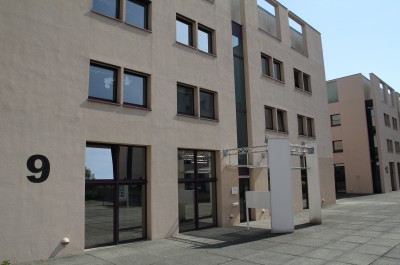| Project period |
01.06.2023 – 31.05.2026
| Project staff |
Dr. Farina Rühs & Dr. Anna Isenhardt (extern) (project management)
Pia Wilsdorf
| Funding |
Hans-Böckler-Stiftung
Kriminologisches Forschungsinstitut Niedersachsen (KFN e.V.)
| Project description |
In recent years, the number of media reports about violence and aggression against politicians has increased. Cases such as the assassination of the Kassel district president Walter Lübcke (CDU) or the attacks on the mayor of the city of Cologne, Henriette Reker (no party affiliation) and the Upper Bavarian district councilor Stefanie Kirchner (Die Linke) have been widely discussed and represent the most extreme form of victimization in this area. In addition, a more aggressive tone as well as increasing personal and digital insults and threats against politicians are reported. These developments raise the question of the risk of paralyzing democratic institutions, which could weaken the democratic process as well as social cohesion. Previous research has focused on small samples and single levels of political representation. In addition, previous surveys have used pre-prepared lists of incidents of aggression and violence, which disregards the nature and situational context of the incident.
The research project “Aggression and Violence against Politicians in Germany. Forms, Spread and Consequences for Individuals and Society” addresses these research gaps. The aim of the project is to survey the different types of victimization experienced by politicians in Germany. Furthermore, we will investigate how widespread these different types of victimization are and how the experiences differ regarding party affiliation, gender, socio-demographic background and the level of political representation (federal, state, local)co. In this context, the personal consequences as well as the consequences for individual political commitment will also be surveyed, as well as how the politicians deal with their experiences. In addition, the survey will examine how public perceives violence against politicians and how this influences the willingness of previously non-politically active individuals to assume political office. Subsequently, we will examine how the victimization experiences of other socio-politically active persons, such as trade unionists or works council members, are similar or different. Finally, recommendations for action for the various relevant actors (e.g. politics, police, civil society) and special recommendations for action for women and migrants in politics will be made.
In the study, different research methods are combined. With the help of qualitative interviews (n=20-25), different types of victimization are formed, which include forms of victimization as well as the situational context. Subsequently, politicians at federal, state and local level will be interviewed in a representative quantitative survey (N=22 600) about their experiences of aggression and violence, how they deal with them, and the consequences for their political work and commitment. In addition, further qualitative interviews (n=15) with trade unionists and works council members will be conducted for comparison purposes.
The project will conclude with a workshop in which the results will be presented to political decision-makers, representatives of interest groups, the police and the fields of prevention and intervention. The results of the workshops will be analyzed and incorporated into the recommendations for action.

